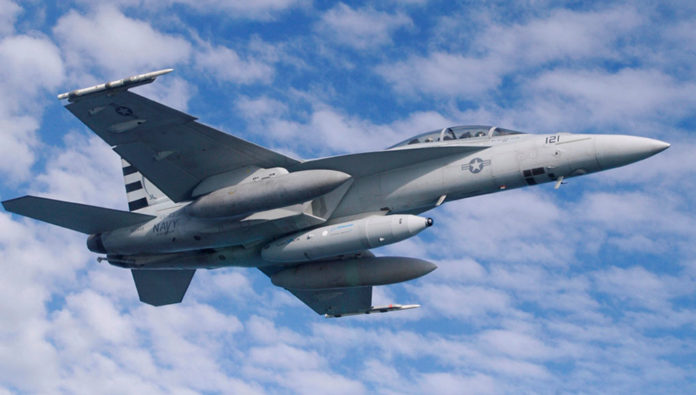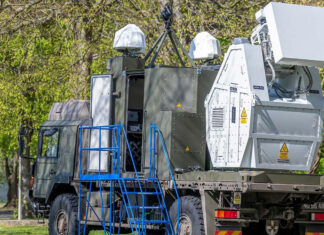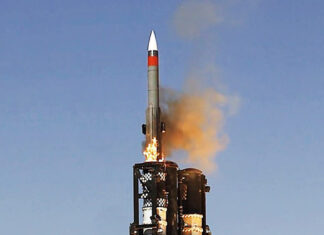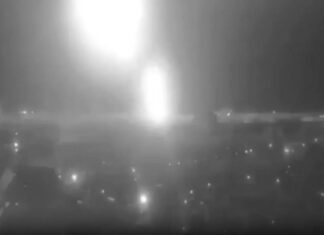
The Boeing Co., St. Louis, Missouri, is being awarded an $82 million fixed-price-incentive-firm contract for the procurement of 12 low-rate initial production Infrared Search and Track (IRST) systems for the F/A-18E/F aircraft. Delivery of the new sensors will be completed by 2020.
The IRST system developed and built by Lockheed Martin is a long-wave infrared (LWIR) detection system housed in a centerline pod. The IRST targets airborne vehicles in a radar-denied environment.
IRST is a critical element of the U.S. Navy’s F/A-18E/F Block II Super Hornet Flight Plan, a series of planned capability enhancements planned to maintain the Super Hornet ahead of emerging threats over the coming decades. According to the Navy’s plans, up to 150 IRST systems could be procured to support the U.S. Navy’s F/A-18E/F fleet.



















